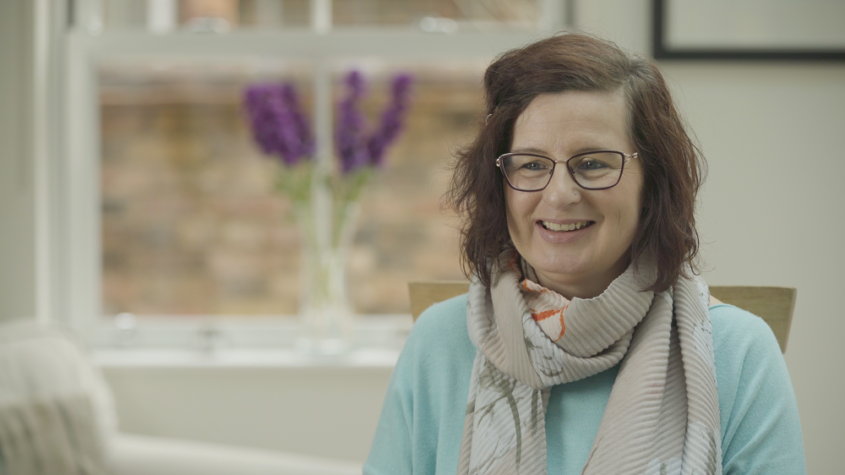What family cancer syndromes are linked to pancreatic ductal adenocarcinoma?
These rare genetic conditions can increase the risk of pancreatic cancer. Find out what to do if you have one of these genetic conditions.
Peutz-Jeghers syndrome
This causes lots of non-cancerous growths (polyps) in the digestive system, and dark spots on the hands and face. Nine out of ten cases (90%) are caused by a fault in a gene called STK11. This condition mainly increases the risk of bowel and breast cancer but may also increase the risk of pancreatic cancer.
The NICE guidelines for pancreatic cancer recommend monitoring for pancreatic cancer if you have Peutz-Jeghers syndrome.
Faults in the BRCA2 and BRCA1 genes
Both men and women can have faults in the BRCA2 and BRCA1 genes. Faults in these genes greatly increase the risk of breast and ovarian cancer. They also increase the risk of other cancers, including prostate and skin cancer (melanoma).
In families with one or more cases of pancreatic cancer (but few cases of breast or ovarian cancer), a fault in the BRCA2 gene increases the risk of pancreatic cancer. In families with breast and ovarian cancer, a fault in the BRCA2 gene slightly increases the risk of pancreatic cancer.
There’s less evidence that a fault in the BRCA1 gene increases the risk of pancreatic cancer.
The NICE guidelines for pancreatic cancer recommend monitoring for pancreatic cancer if you have a fault in BRCA2 or BRCA1 and one or more first degree relatives (parent, brother, sister or child) with pancreatic cancer.
Most pancreatic, breast, ovarian, prostate and skin cancers aren’t caused by faults in BRCA2 or BRCA1. So if someone in your family has one of these cancers, it doesn’t mean you have a higher risk of developing one of them.
BRCA Umbrella has an online forum for people with a fault in a BRCA gene.
Faults in the PALB2 gene
PALB2 is a gene linked to the BRCA2 gene. A fault in this gene increases the risk of breast cancer and slightly increases the risk of pancreatic cancer.
The NICE guidelines for pancreatic cancer recommend monitoring for pancreatic cancer if you have a fault in PALB2 and one or more first degree relatives with pancreatic cancer.
Familial atypical multiple mole and melanoma syndrome (FAMMM)
This is a condition caused by a fault in genes called CDKN2A (p16) and CDK4. People with FAMMM have large numbers of unusual moles. They also have a higher risk of skin cancer (melanoma) and pancreatic cancer.
The NICE guidelines for pancreatic cancer recommend monitoring for pancreatic cancer if you have a fault in CDKN2A (p16) and one or more first degree relatives with pancreatic cancer.
Lynch syndrome
Lynch syndrome is caused by faults in one of several genes – MLH1, MSH2, MSH6 or PMS2. Lynch syndrome increases the risk of bowel cancer. It also slightly increases the risk of some other cancers, including pancreatic cancer. You may hear of Lynch I or Lynch II. Lynch II is the form of the syndrome that may be linked with pancreatic cancer.
The NICE guidelines for pancreatic cancer recommend that monitoring for pancreatic cancer should be considered if you have Lynch syndrome and any first degree relatives with pancreatic cancer.
Lynch Syndrome UK supports people with the condition.
Li-Fraumeni syndrome
This is usually caused by a fault in a gene called TP53. It increases the risk of several cancers, including breast cancer, brain tumours and leukaemia (a type of blood cancer). It may also increase the risk of pancreatic cancer.


